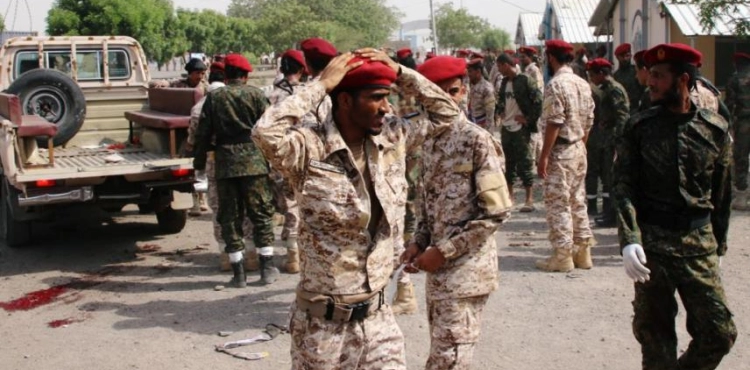The United Nations Office for Human Rights on Tuesday expressed concern that Yemenis of northern Yemeni origin were abused after two attacks last week in the southern city of Aden.
A spokeswoman for the office, Rafina Shamdasani, said in a statement that units belonging to the forces known as the "security belt" were behind the abuses.
The influential "security belt" in southern Yemen, which is fighting Houthis in government forces, is backed by the United Arab Emirates, a key member of a Saudi-led military alliance in the country against rebels.
These forces consist mainly of southern separatists who want independence for southern Yemen and belong to the Southern Transitional Council.
The south was an independent state until unity with the north in 1990.
The spokeswoman said the ill-treatment was part of "retaliatory attacks" carried out by these forces, made up of residents of southern Yemen, following Friday´s attacks in Aden and Abyan province.
Sixty-three people were killed in the three attacks on the "security belt" forces, including a drone attack adopted by Houthi rebels on Thursday.
"We have received information from various sources about arrests, arbitrary detentions, forced displacement, physical assaults and harassment, as well as looting and sabotage by security forces against hundreds of northerners," the statement said.
The statement added that according to information received, security forces "searched hotels and restaurants, stopped people demanding their identities" and arrested people from northern Yemen.
"Arrests and forced displacement violate international law," the UN human rights office said.
Many on social media reported reprisals against Yemenis from the north in the south of the country.
For his part, Yemeni Prime Minister Moin Abdul Malik Saeed on Sunday condemned these actions through a tweet in his account on Twitter, stressing "what is happening in Aden of violations that harm and insult Yemeni citizens with regional motives can not be overlooked serious consequences in the cracking of the social fabric" warning of its effects On unity among Yemenis.
Yemen has been at war since 2014 between Houthi rebels close to Iran and forces loyal to the government of recognized President Abed Rabbo Mansour Hadi, which escalated in March 2015 as Saudi Arabia intervened at the head of a military alliance in support of government forces.












